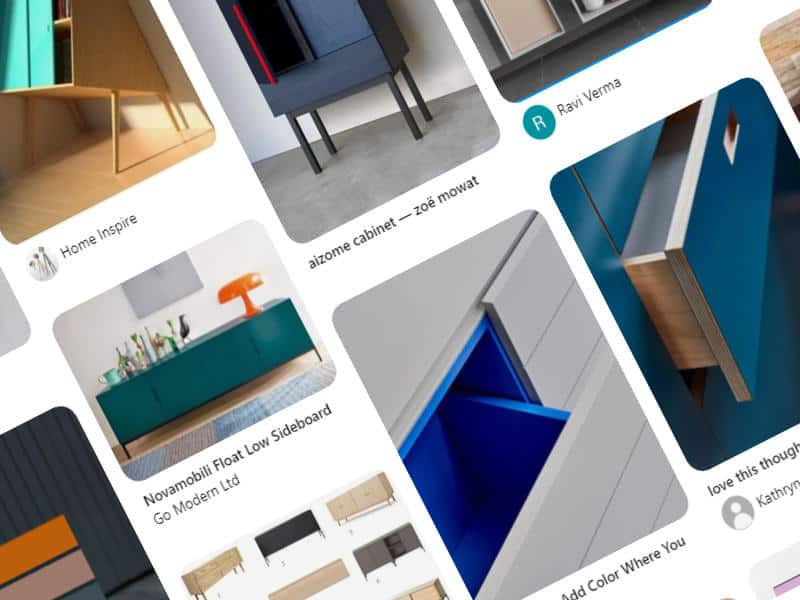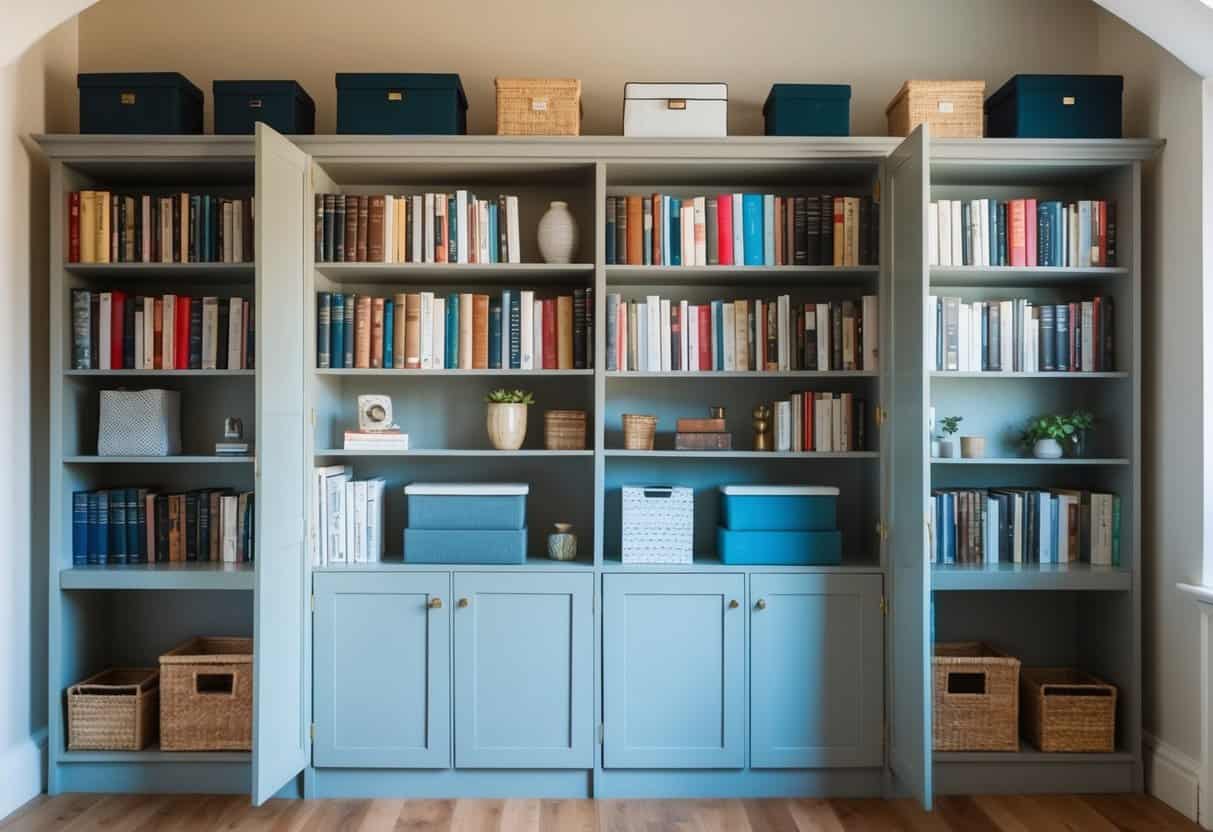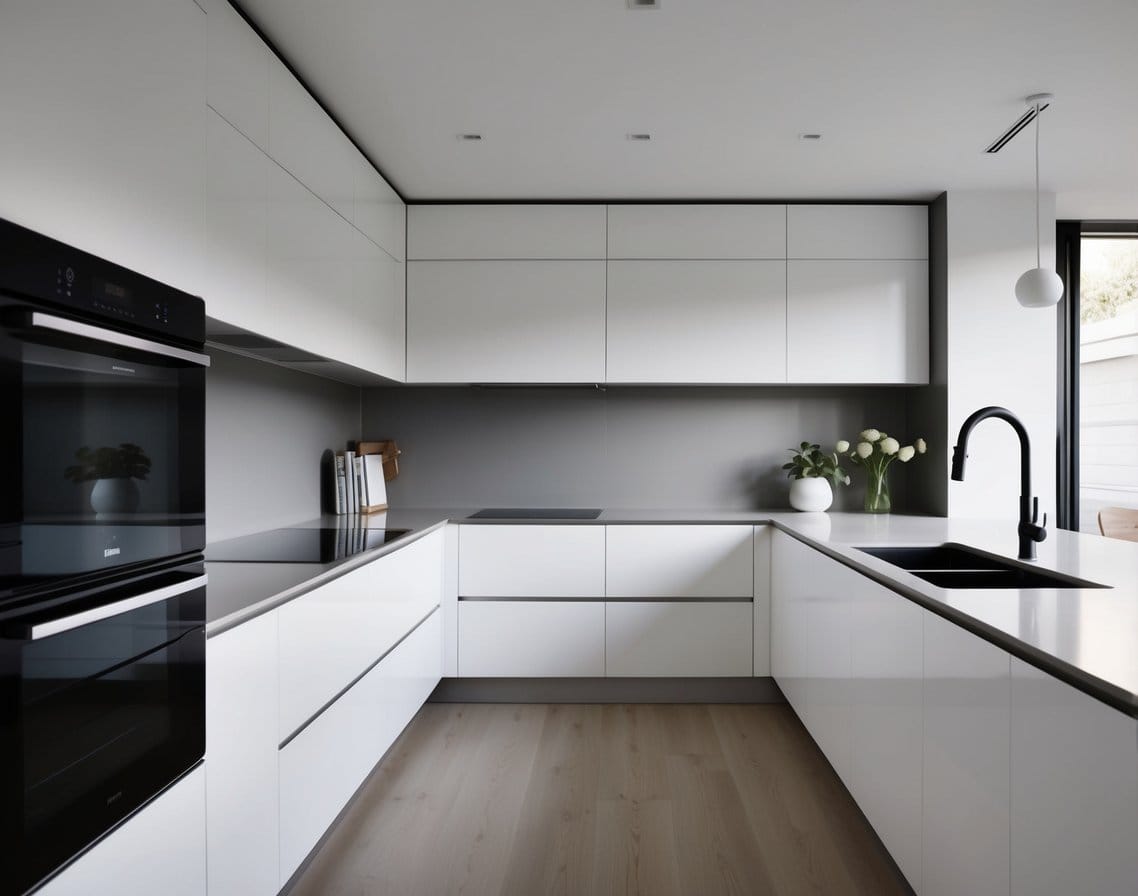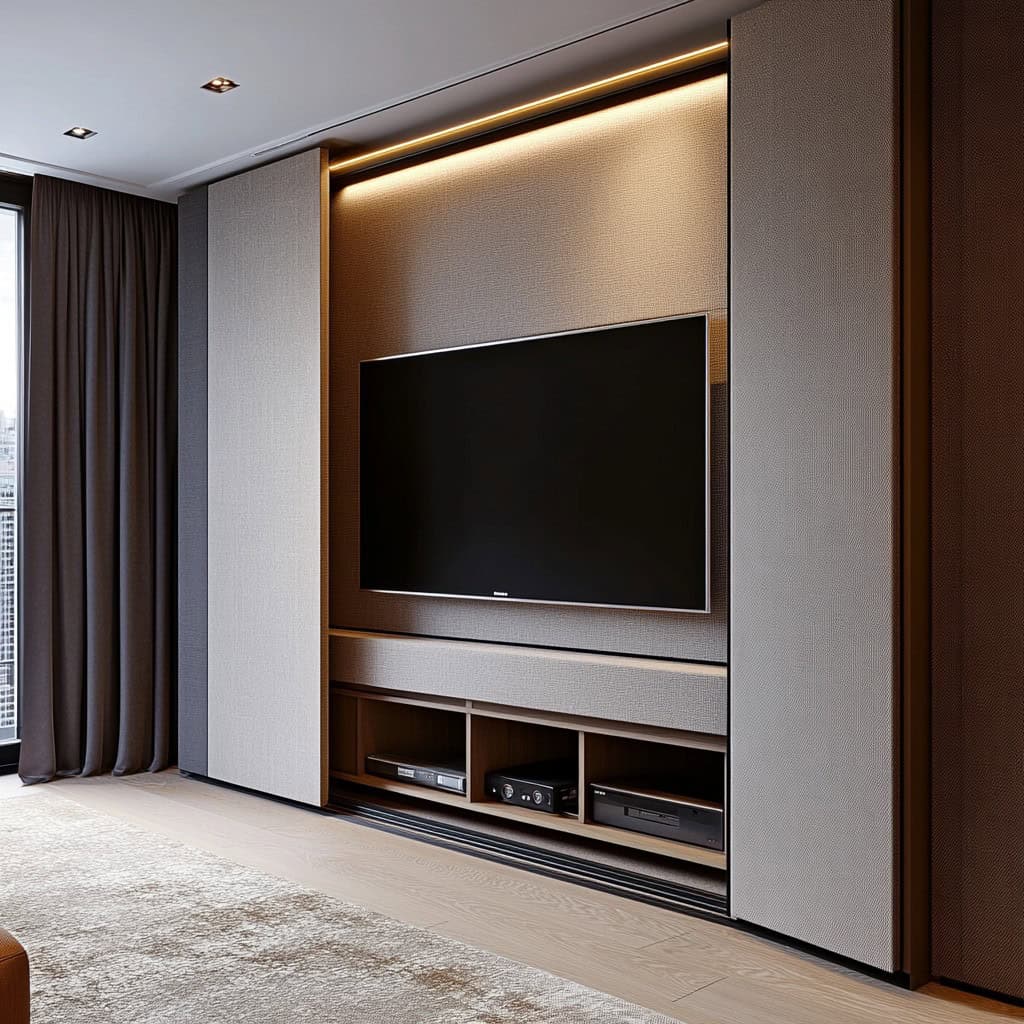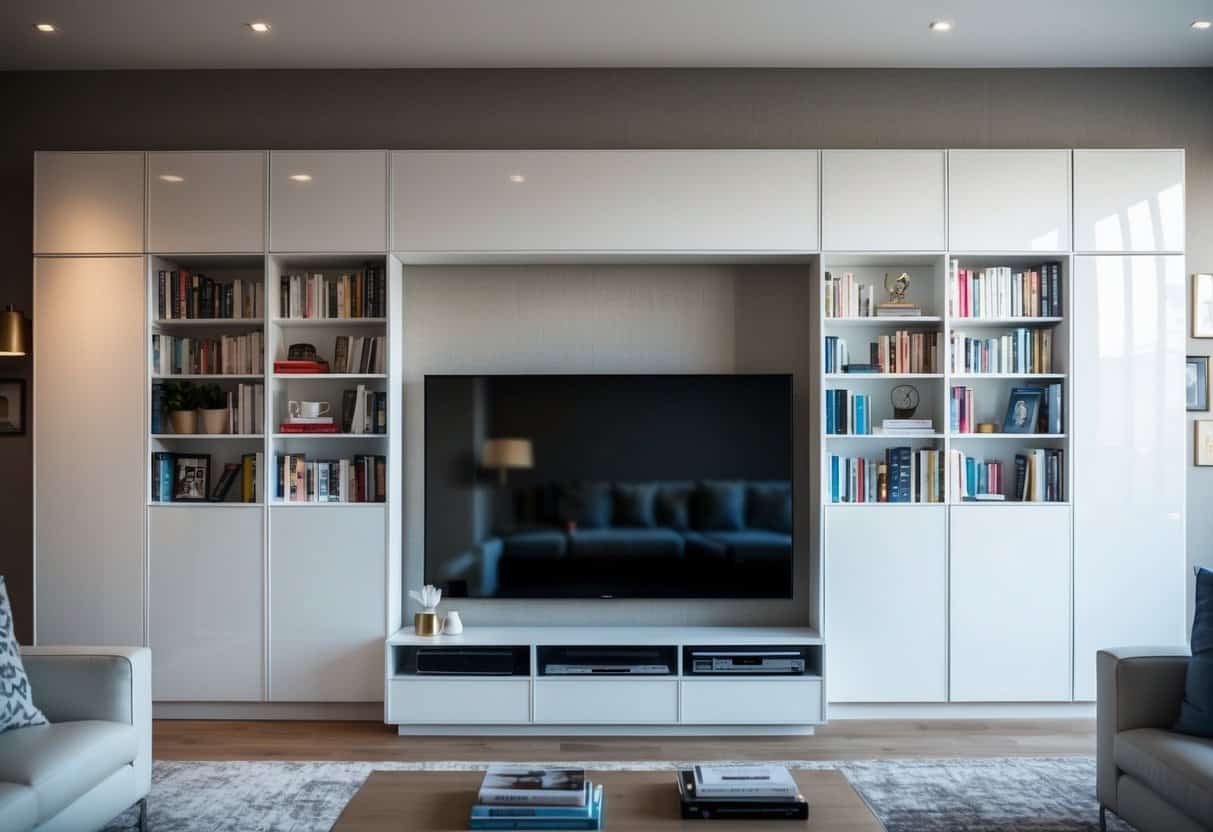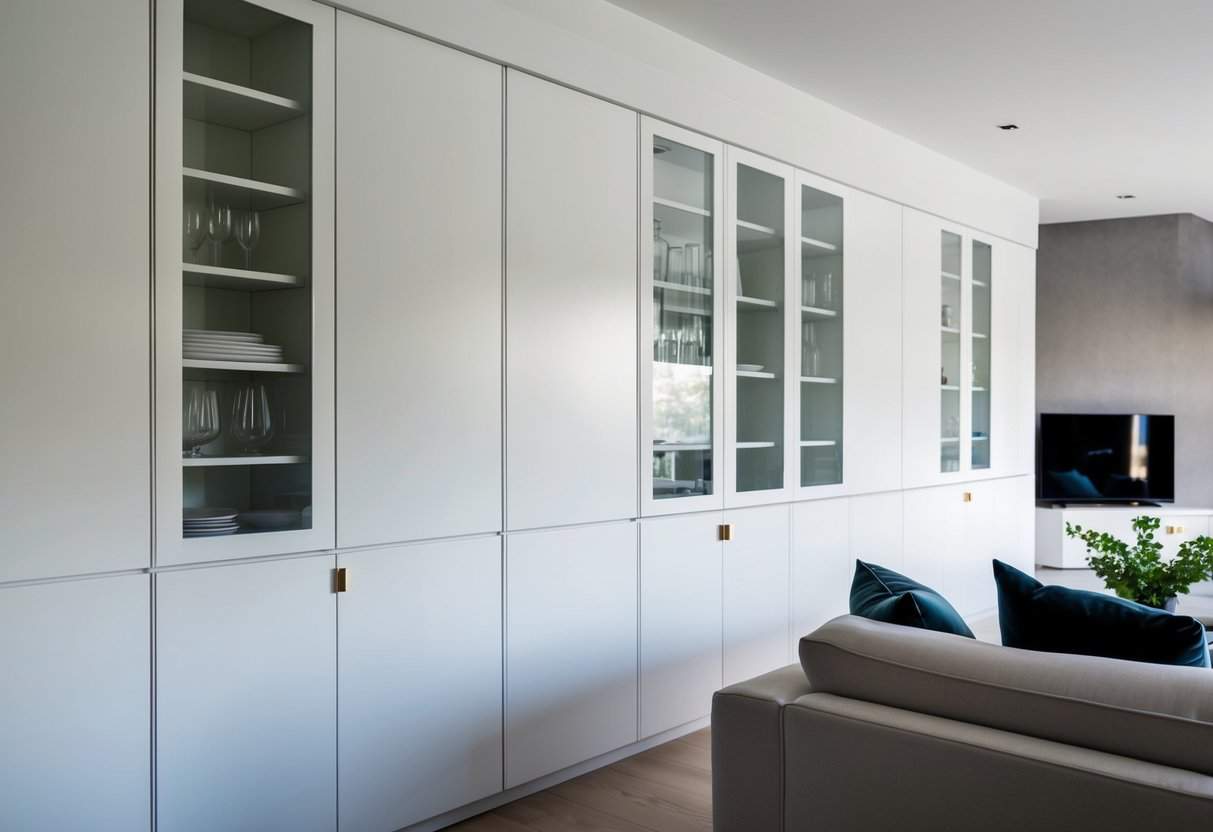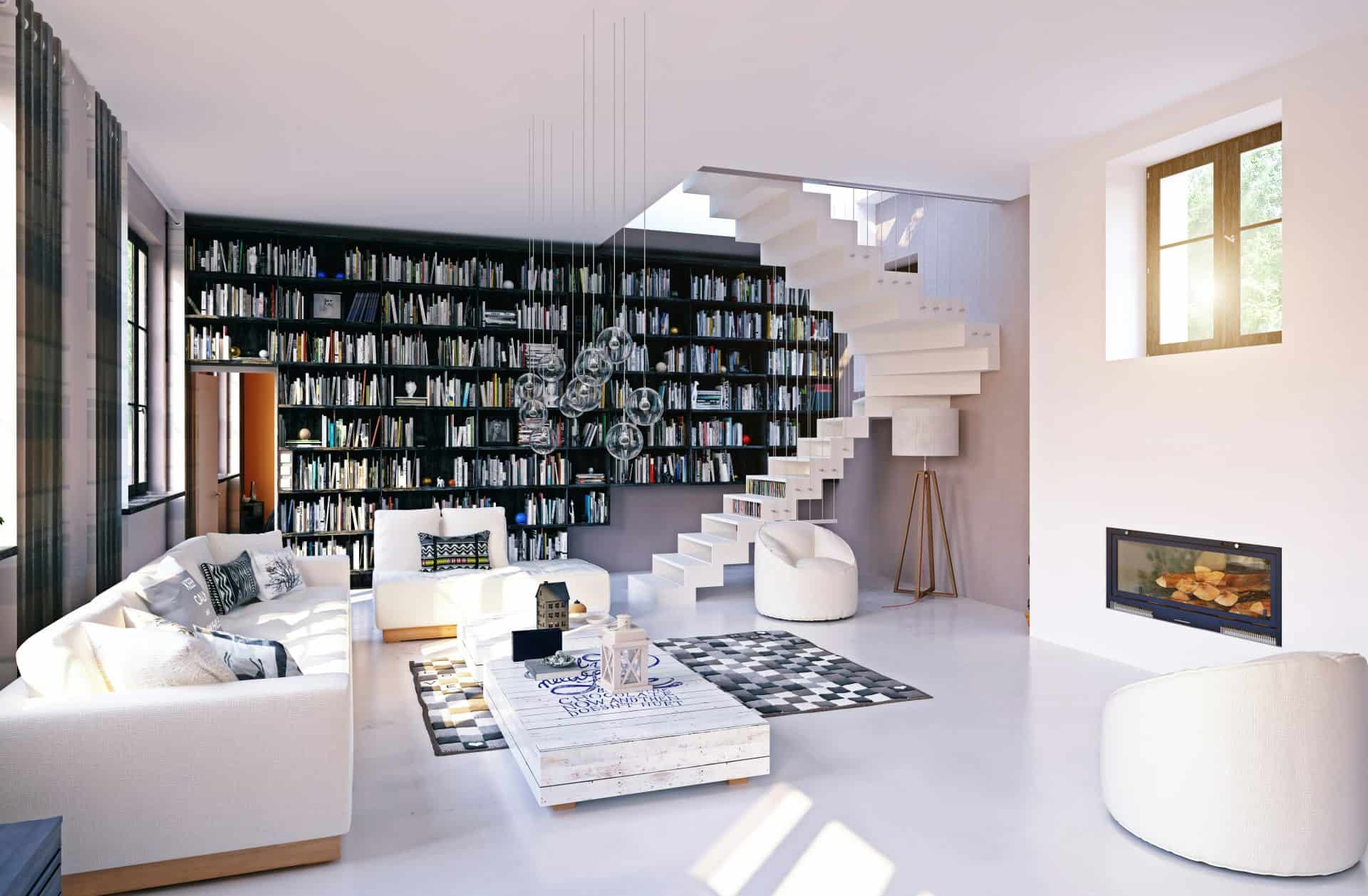Creating bespoke furniture can transform your space with pieces that are tailored to your personal style and specific needs through close collaboration between designers and clients.
Bespoke furniture costs can vary greatly, ranging from a few hundred to several thousand pounds. The price often depends on materials, craftsmanship, and the complexity of the design. Bespoke furniture can also help complete your interior design project by providing the perfect piece that fits into your overall aesthetic and meets specific requirements.
If you’re looking for something unique that fits perfectly into your home, custom-made furniture may be worth the investment.
It’s a chance to own something that not only reflects your taste but also maximises the functionality of your space.
Curious about what factors influence these costs?
Read on to explore how materials, craftsmanship, and design choices impact the price of bespoke furniture.
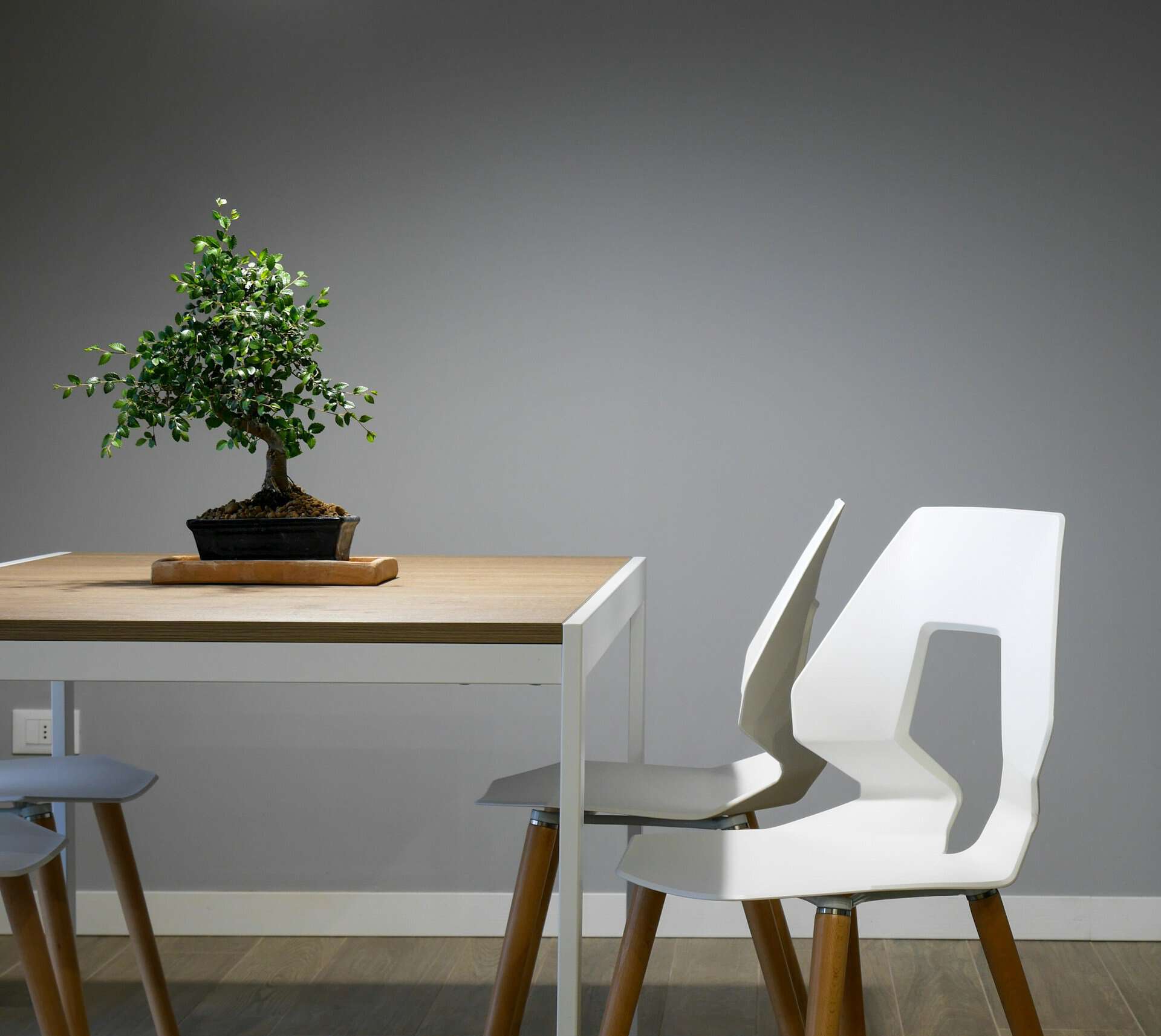
Adding pieces of bespoke furniture to your home, not only is aesthetically pleasing but can maximise space too.
Key Takeaways
Bespoke furniture costs range from hundreds to thousands of pounds.
Material and craftsmanship influence the final price.
Customisation allows for unique design and enhanced functionality.
Understanding Bespoke Furniture Costs
The price of bespoke furniture is shaped by several key factors, making it distinct from standard furniture. Bespoke furniture pieces are developed from initial concepts, involving sketches and mockups before reaching the final production stage.
The choice of materials, labour involved, and design complexity all play crucial roles. Interior designers often collaborate with product design experts to create unique, custom pieces, although this process can be less practical due to higher costs and longer production times.
Factors Influencing Bespoke Furniture Prices
Materials: The cost of materials is one of the main factors.
High-quality wood, metals, and fabrics will significantly impact the final price. Imported or rare materials will be more expensive compared to standard options.
Labour: Skilled craftsmanship is essential for bespoke furniture created from scratch.
The time and expertise required affect the cost. Experienced artisans deserve fair compensation for their meticulous work, which ensures a unique and high-quality piece.
Design Complexity: Detailed and complex designs require more hours and specialised skills, which can drive up the price. Simple designs are less expensive due to the reduced time and effort involved.
Price Comparison with Standard Furniture
Bespoke furniture generally costs more than standard, mass-produced furniture.
Standard furniture is made in factories using automated processes, which lowers costs. Bespoke pieces, crafted by hand, involve personalized attention and care.
For example, a standard wardrobe might cost a few hundred pounds, while a built-in bespoke wardrobe can range from £1,000 to several thousand pounds depending on the specifics.
This higher cost reflects the unique design, high-quality materials, and expert labour involved.
If you seek unique pieces tailored to your taste and space, the value and distinctiveness of bespoke furniture justify the higher price.
Standard furniture offers affordability and availability, but it lacks the personal touch and custom fit of bespoke pieces.
Materials and Craftsmanship
When determining the cost of bespoke furniture, both the materials used and the level of craftsmanship play significant roles.
These elements directly impact the quality, durability, and overall expense of each piece. Discover the range of materials and craftsmanship available in bespoke furniture.
Choosing the Right Materials
The choice of materials is a substantial factor in the cost of bespoke furniture.
Hardwood options like oak and walnut are popular due to their strength and aesthetic appeal.
Oak:
Durable
Wear-resistant
Walnut:
Luxurious finish
Rich colour
Alternatively, Medium Density Fibreboard (MDF) is often used for its versatility and lower cost.
MDF can be shaped and finished in various ways, making it a flexible choice for different design styles.
MDF:
Versatile
Cost-effective
The material you choose will influence not only the initial expense but also the longevity and maintenance needs of the furniture.
The Role of Craftsmanship in Pricing
The level of craftsmanship required also affects the price.
Detailed joinery and intricate designs demand more time and skill, thus increasing labour costs.
Handcrafted items often showcase superior craftsmanship, which enhances their quality and lifespan.
While these pieces might be pricier, the investment typically ensures better value and uniqueness.
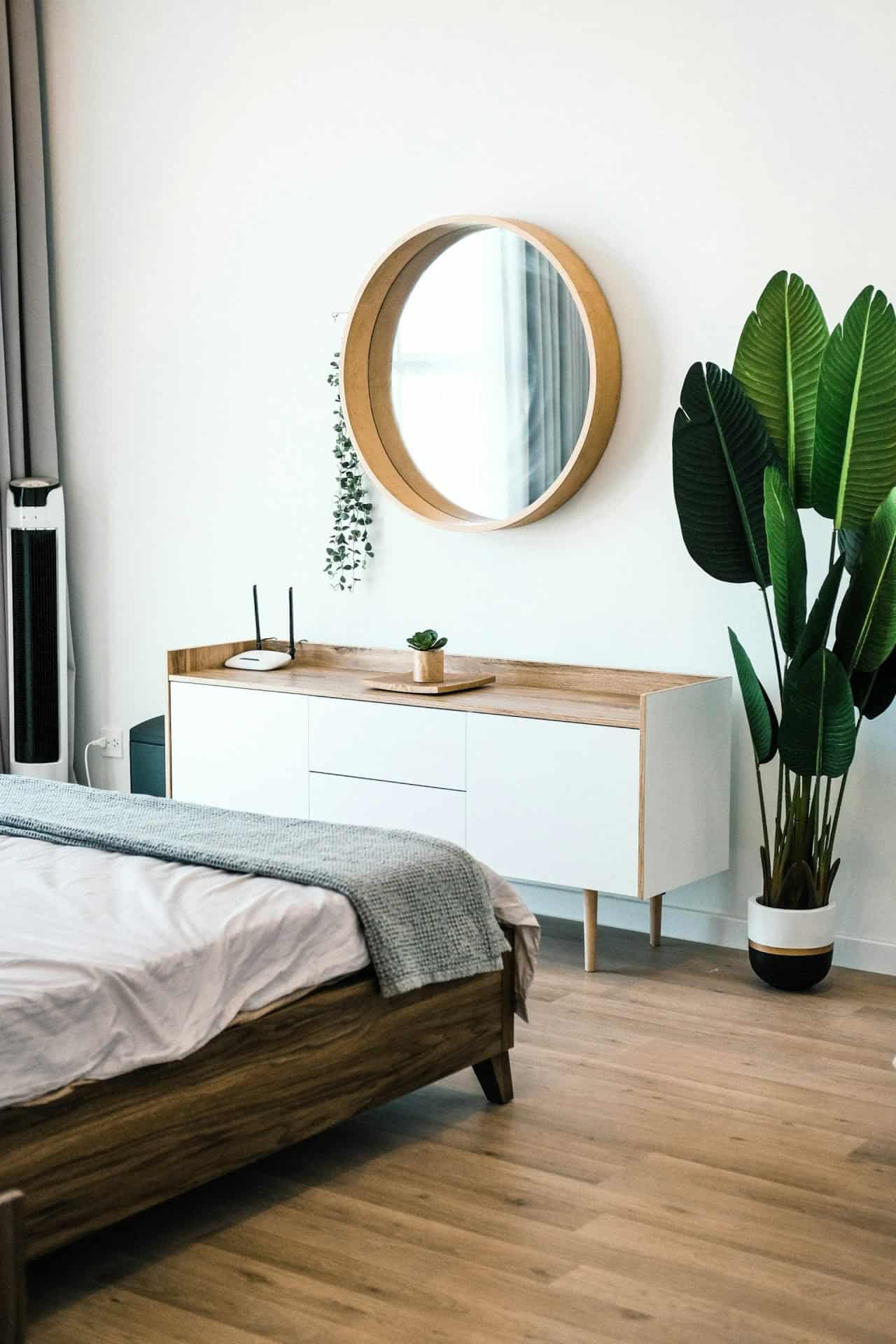
Taking time to consider materials is very important
Design and Customisation
Creating bespoke furniture allows you to infuse style and personality into your living space. This section covers how personal tastes shape design and the consultation process for achieving your vision. Bespoke furniture can help create your dream home by fulfilling your unique vision and personal style.
From custom-built wardrobes to tailored desks, every piece is designed to meet your specific needs and preferences. The process involves understanding your lifestyle and practical requirements to create furniture that is both functional and aesthetically pleasing.
Additionally, bespoke furniture designs often include mirrors, which are integral components that enhance the overall aesthetic of your home decor.
Incorporating Personal Style and Taste
Your bespoke furniture should reflect your unique style and taste.
When designing a piece, you can choose from numerous styles, from modern to traditional.
Aesthetics are key, as the furniture should complement your home’s existing decor.
Consider how the piece will fit into your living space.
For example, a custom kitchen island can be designed to match your kitchen’s layout and colours.
If you prefer intricate designs, details like carvings or inlays can be incorporated to add a touch of elegance.
No two people have the same tastes or lifestyles, and bespoke furniture should reflect this individuality. It’s all about creating something that genuinely resonates with your personality.
Design Customisation and Consultation Process with Interior Designers
The design customisation starts with a consultation process, ensuring your needs and preferences are understood.
During this stage, you’ll discuss various aspects such as size, materials, and colour schemes.
Your preferences are transformed into detailed sketches or 3D models.
This step allows you to visualise the final product and make adjustments.
This consultation process ensures that every detail aligns with your vision before the manufacture begins.
You may see samples of materials and finishes, helping you make informed choices.
Once everything is agreed upon, skilled artisans begin crafting your furniture, incorporating every detail discussed.
Additional Costs and Considerations
When planning for bespoke furniture, it’s essential to think about extra expenses beyond the initial price. Delivery and installation fees, as well as VAT and hidden costs, can significantly impact your budget.
Delivery and Installation Fees
Delivery and installation of bespoke furniture can add a notable amount to your overall expenses.
Delivery fees often depend on the distance and complexity of transporting your furniture. Long-distance deliveries or those requiring special handling can cost more.
Installation fees are crucial, especially for complex pieces like fitted wardrobes or kitchen units.
Professional installation ensures that your furniture fits and functions perfectly.
It might cost a bit more, but it can save you time and potential issues in the long run.
Keep in mind that some companies might include these fees in the initial quote, while others will add them on later. Always confirm with your provider to avoid unexpected costs.
VAT and Hidden Expenses
Value Added Tax (VAT) is an important factor that could affect the final price of your bespoke furniture.
In the UK, VAT is currently at 20%. Ensure that the quoted price includes VAT to avoid surprises.
Hidden expenses can come from various sources, such as:
Custom finishes: Special paints or stains.
Storage fees: If your furniture needs to be stored before installation.
Appliances: Adding built-in appliances to bespoke kitchen units.
Finishing touches: Custom knobs, handles, or other decorative elements.
Discussing these details upfront with your furniture maker can help you plan better and ensure that everything fits within your budget.
Always read the fine print and ask questions if anything is unclear.
Frequently Asked Questions
Understanding the costs of bespoke furniture involves many factors, including design complexity, materials, and craftsmanship. Below, you’ll find common questions and answers to help clarify these aspects.
What are the typical price ranges for bespoke furniture pieces?
Bespoke furniture prices can vary widely.
For example, a bespoke dining table can cost anywhere from £3,000 to £30,000, depending on the design and materials used.
Other pieces might fall within a similar range, reflecting the custom nature of the work involved.
Can you explain the cost factors involved in creating bespoke furnishings?
Several factors influence the cost of bespoke furniture.
These include the type of materials, the complexity of the design, the time required for construction, and the level of craftsmanship. Each of these elements can significantly impact the final price of a custom-made piece.
What is the average investment required for bespoke joinery services?
The cost of bespoke joinery services varies, but you should be prepared to invest a substantial amount.
The level of detail, intricacy of the design, and the quality of materials used can all affect the investment required.
Typically, bespoke joinery starts around a few thousand pounds and can increase from there.
How does the complexity of design influence the pricing of custom-made furniture?
Complex designs generally increase the cost of bespoke furniture.
More intricate designs require more time, expertise, and materials to create, which can drive up the price.
Simple designs may be less expensive, but complex pieces often reflect a higher level of artistry and craftsmanship.
To what extent do materials and craftsmanship affect the cost of bespoke cabinets?
Materials and craftsmanship are crucial factors in determining the cost of bespoke cabinets.
High-quality materials like rare woods or premium finishes can significantly increase the price.
Likewise, skilled craftsmanship and attention to detail also contribute to higher costs due to the time and expertise involved.
Are there any hidden costs associated with ordering furniture made-to-measure?
Generally, reputable bespoke furniture makers are transparent about costs. However, additional expenses can arise. These include delivery fees, installation charges, or costs for custom finishes. You should discuss all potential costs upfront with your furniture maker to avoid any unexpected expenses.

